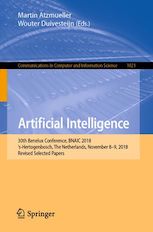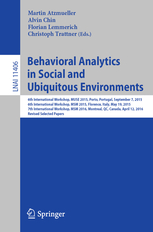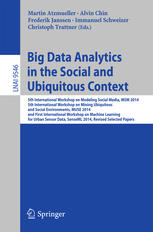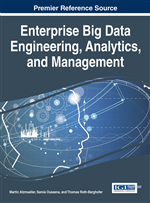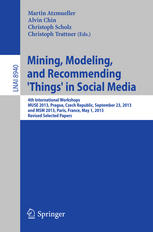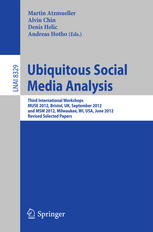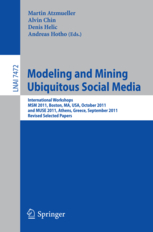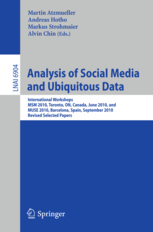
Professor at Osnabrück University
Computer Science, Research Group
Semantic Information Systems
German Research Center for
Artificial Intelligence (DFKI)
- Scientific Director -
Research Department
Cooperative and Autonomous Systems (CAS)
Univ.-Prof. Dr. rer. nat. habil. Martin Atzmüller
Institute of Computer Science
Wachsbleiche 27
49090 Osnabrück
martin.atzmueller@uni-osnabrueck.de
Google Scholar Profile
DBLP Profile
Martin Atzmueller is Full Professor (W3, tenured) at Osnabrück University (Germany), where he heads the Semantic Information Systems research group, as well as Scientific Director at the German Research Center for Artificial Intelligence (DFKI), heading the research department Cooperative and Autonomous Systems.
In addition, Professor Atzmueller is founding spokesperson of the Joint Lab on Artificial Intelligence and Data Science and member of the Research Center Data Science at Osnabrück University. Previously, he also held appointments at Tilburg University (The Netherlands) as an Associate Professor, and at the Université Sorbonne Paris Nord (France) as a Visiting Professor.
He earned his habilitation (Dr. habil.) in 2013 at the University of Kassel, where he also was appointed as adjunct professor (Privatdozent). Further, he received his Ph.D. (Dr. rer. nat.) in Computer Science from the University of Würzburg in 2006. He studied Computer Science at the University of Texas at Austin (USA) and at the University of Würzburg where he completed his MSc (Diplom-Informatiker Univ.) in Computer Science.
Research
Martin Atzmueller's research interests include Artificial Intelligence (AI), Data Science and Integrative AI Systems, where his research covers, in particular, complex data, explainable AI, interpretability, machine perception, as well as semantic modeling. A major focus lies on machine learning and analysis on complex (sensor) data such as images, graphs, networks, and temporal data, often encountered in complex systems, as well as the respective system view and design. This also relates to applications in complex integrative AI system domains, for example, to robot control and integrative sensor-based AI systems. Here, the goal is to develop according semantic perception-based information systems, which can act both interactively and autonomously, in particular also enabling explainable methods for trusted AI system design.
Selected Publications
Slides of Recent Tutorials
WWW 2018: Mining Attributed Networks
DSAA 2017: Mining Attributed Networks
Web Science 2016: Community Detection: From Plain to Attributed Complex Networks
ASONAM 2015: Subgroup Discovery and Community Detection on Attributed Graphs
CSSWS 2015: Subgroup and Community Analytics
Recent Projects/Activities
FRED: Artificial Intelligence and Trusted Edge Computing for freshness data management - from Farm to Fork on the Edge (funded by BMWK: Federal Ministry for Economic Affairs and Climate Action).
Resilient Athletes using Sensor-Based Social Analytics (funded by ZonMW).
Di-Plast: Digital Circular Economy for the Plastics Industry using Data Analytics and Internet of Things (funded by Interreg NWE).
MODUS: Model-based Anomaly Pattern Detection and Analysis in Ubiquitous and Social Interaction Networks (funded by DFG).
-
ODYN: Observing Team Dynamics and Communication using Sensor-Based Social Analytics (funded by NWO).
-
HIHAT: Building high performing and happy teams using sensor-based social analytics (funded by NWO).
Conferator: A system platform for enhancing smart ubiquitous and social interactions.
EveryAware (FP7, completed, but research continues in the Ubicon initiative)
Frameworks and Tools
SD4Py Python package for subgroup discovery.
rsubgroup R package for subgroup discovery.
- VIKAMINE

